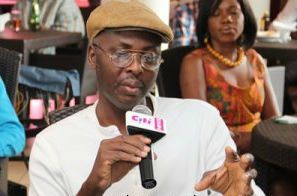Ghana’s new High Commissioner to the Republic of Namibia, Alhaji Abdul-Rahman Harruna Attah has presented his letters of credence to His Excellency Dr. Hifikepunye Pohamba, President of the Republic of Namibia.
Alhaji Harruna Attah succeeds Major General Samuel A. Odotei, a former Army Commander of Ghana’s Armed Forces.
A release from the Ghana High Commission in Windhoek copied to the Ghana News Agency (GNA) said the High Commissioner, together with six other envoys from The Islamic Republic of Pakistan, The Kingdom of Thailand, The Kingdom of Lesotho, The Federal Democratic Republic of Ethiopia, The Republic of Sudan and The Republic of Burkina Faso were jointly received by the Namibian President at the State House on July 23, 2014.
President Pohamba in his remarks, welcomed the envoys from countries that he said had assisted Namibia in its war of independence, and said he looked forward to a deepening of the cooperation and friendship already existing between his country and those of the seven envoys. He also asked for increased trade between them and promised to keep his doors open to the envoys.
Responding on behalf of his colleagues, the Ghanaian High Commissioner thanked President Pohamba for the privilege of serving in Namibia. He assured the President that they would work assiduously to promote trade, world peace and security.
According to the release, before the presentation of credentials, the High Commissioner met with the Minister of Foreign Affairs, Honourable Netumbo Nandi Ndaitwah, to introduce himself to her and present his Open Letters. She expressed her satisfaction about the cordiality that exists between Ghana and Namibia. They both agreed to work on the resumption of Air Namibia’s suspended Windhoek – Accra route.
Namibia attained independence in March 1990 after a protracted struggle. Mr. Sam Nujoma was elected the first president and is referred to as the Founding President and Father of the Namibian nation.
The country has subsequently developed into a haven of peace and stability, in its practice of multi-party democracy. It shares borders with Angola, Zimbabwe, Zambia, Botswana, South Africa, and on the west by the Atlantic Ocean. It is rich in diamonds, beef products and fish from its expansive territorial waters.
Regional News of Wednesday, 30 July 2014
Source: GNA













